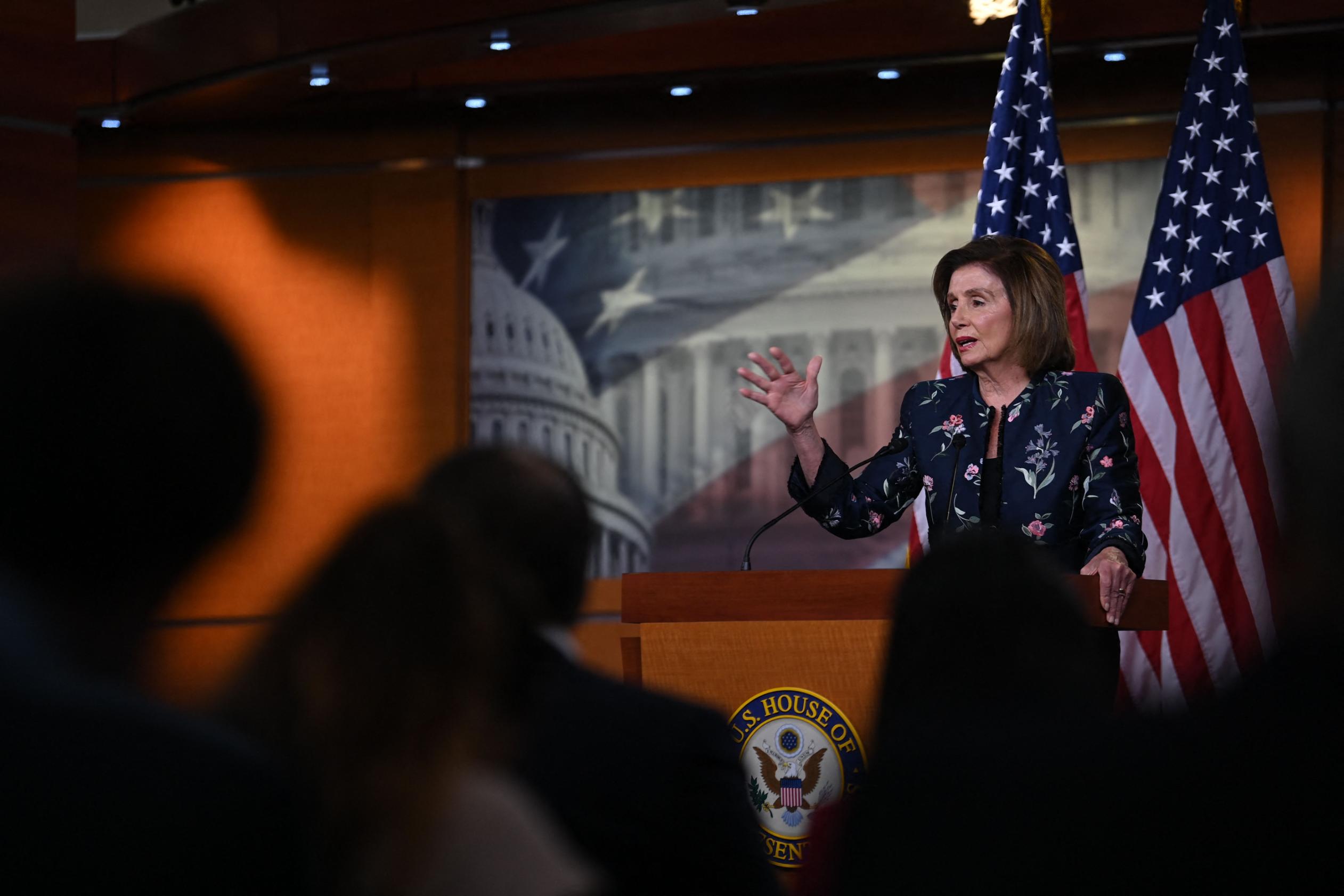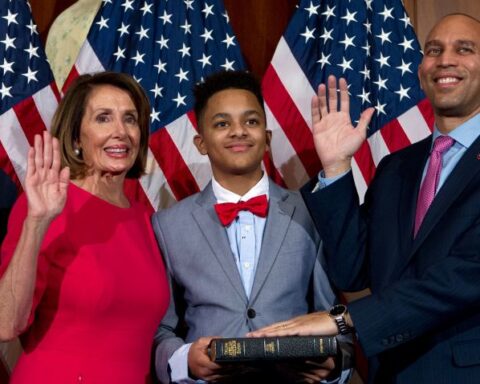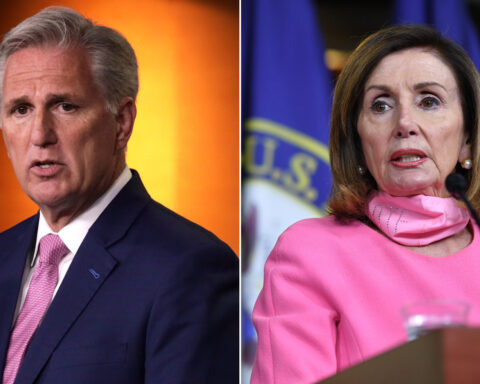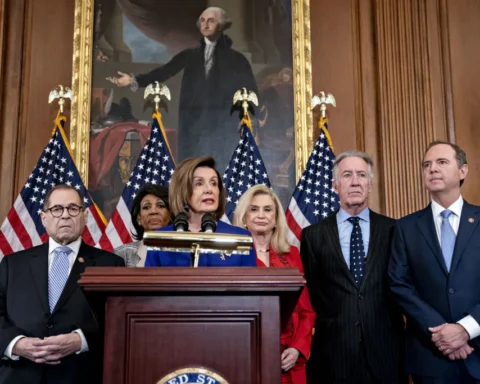Divisions among House Democrats over how to enact President Joe Biden’s sweeping infrastructure agenda are poised to come to a head when lawmakers return to Washington this week, beginning with a key budget vote.
The House is expected to vote as soon as Tuesday on a budget resolution for the President’s spending package after the Senate approved a $3.5 trillion measure earlier this month. But Democratic divisions are jeopardizing its passage in the House.
The goal is for Democrats to be able to craft a sweeping legislative package to expand the social safety net under a budget process known as reconciliation, which would not be subject to the Senate filibuster’s 60-vote threshold.
But both chambers eventually need to adopt the budget resolution, and a group of nine moderate House Democrats are holding that up, pushing to first pass a separate $1 trillion bipartisan infrastructure deal — which the Senate has already passed — before voting on the budget resolution. Their request runs counter to leadership’s plan for advancing the two agenda items. On Friday, the group of moderates again called for an immediate vote on the bipartisan bill first.
Speaker Nancy Pelosi has indicated for months that the House won’t take up the bipartisan bill until the Senate passes a larger and more sweeping package through budget reconciliation. She’s feeling pressure from her left flank, too: House progressives say they won’t support the bipartisan plan on its own without the reconciliation measure.
The disagreement presents an early test of whether Democrats will be able to overcome their internal divisions with a narrow majority in both chambers of Congress and successfully move Biden’s agenda forward.
Democratic leadership has urged unity and stressed the high stakes of the moment as they try to bring along both ideological wings of the party without losing critical votes from either end of the spectrum. The party’s factions will now be on the spot over how far they are willing to go in an attempt to meet their demands.
House Majority Leader Steny Hoyer told members during a Democratic caucus call last week that the rules for budget resolution, the bipartisan Senate infrastructure deal and H.R. 4, the John Lewis Voting Rights Advancement Act, will be voted on Monday night when the House returns, according to a source on the call. Hoyer then said that final passage of the budget resolution and H.R. 4 would likely be on Tuesday.
In the wake of the demand from moderates, Pelosi has urged a swift vote on the budget resolution. “The House must pass the budget resolution immediately,” Pelosi wrote in a letter to House Democrats last week.
Prior to that, the nine moderates said in a letter of their own that they “will not consider voting for a budget resolution” until the bipartisan bill has passed the House and been signed into law.
The letter was signed by Reps. Josh Gottheimer of New Jersey, Vicente Gonzalez, Filemon Vela and Henry Cuellar of Texas, Jared Golden of Maine, Ed Case of Hawaii, Kurt Schrader of Oregon, Jim Costa of California and Carolyn Bourdeaux of Georgia.
Following that letter, Pelosi announced that she had asked the Rules Committee to “explore the possibility” of a rule that would advance the budget resolution and the bipartisan infrastructure package. The rule vote is a procedural vote and marks just one hurdle to be cleared prior to final passage of either measure.
The group of moderates responded to the news by reiterating that they want to first vote on the bipartisan bill before moving on to the budget resolution.
On Friday, as the lawmakers again reiterated their push for an immediate vote on the deal, Gottheimer, the group’s leader and co-chair of the Problem Solvers Caucus, indicated he plans to support the budget resolution.
“I believe we should first vote immediately on the bipartisan infrastructure package, send it to the President’s desk, and then quickly consider the budget resolution, which I plan to support,” the New Jersey Democrat said in a statement.
But the group’s threats to a process that has been blessed by the White House and Democratic congressional leaders has angered progressives, who have pledged to support the bipartisan bill, despite viewing it as too lean, as a companion to the more robust reconciliation package.
On Monday, a coalition of progressive groups — the Working Families Party, Organize For Justice, Indivisible Project and Sunrise Movement — launched a six-figure television and digital ad buy targeting the nine moderates in their home districts.
“Constituents deserve to know the truth about how these nine conservative Democrats are blocking urgent action on jobs, climate, and child care,” Alexandra Rojas, of Organize for Justice and Justice Democrats, said in a statement. “Americans have been waiting for over a decade for action on many of these issues, it’s time to deliver results.”
The ads are being launched, in part, as a rejoinder to outside messaging from centrist groups like No Labels, which are pushing for an immediate vote on the Senate bill.
Despite the back-and-forth, Hoyer expressed optimism that Democrats will stick together during the call on Tuesday, saying, according to a source, “I know that we have some arguments about who goes first, and the fact of the matter is that we will be doing all of the above. And it has been clear in the Senate, House and White House that we will be doing all of the above and I am hopeful that we will all vote for the rule Monday night.”
In a letter to her members over the weekend, Pelosi continued to call on them to work simultaneously on the bipartisan infrastructure bill and the budget package.
House Democratic leadership has the White House standing by them as they seek to navigate the issue.
In a statement to CNN last week, White House deputy press secretary Andrew Bates said Biden backed Pelosi’s efforts.
“The President strongly supports the Rule, which provides the mechanism to bring the bipartisan infrastructure bill, the Build Back Better plan, and voting rights legislation to the floor,” Bates told CNN. “All three are critical elements of the President’s agenda, and we hope that every Democratic member supports this effort to advance these important legislative actions.”







